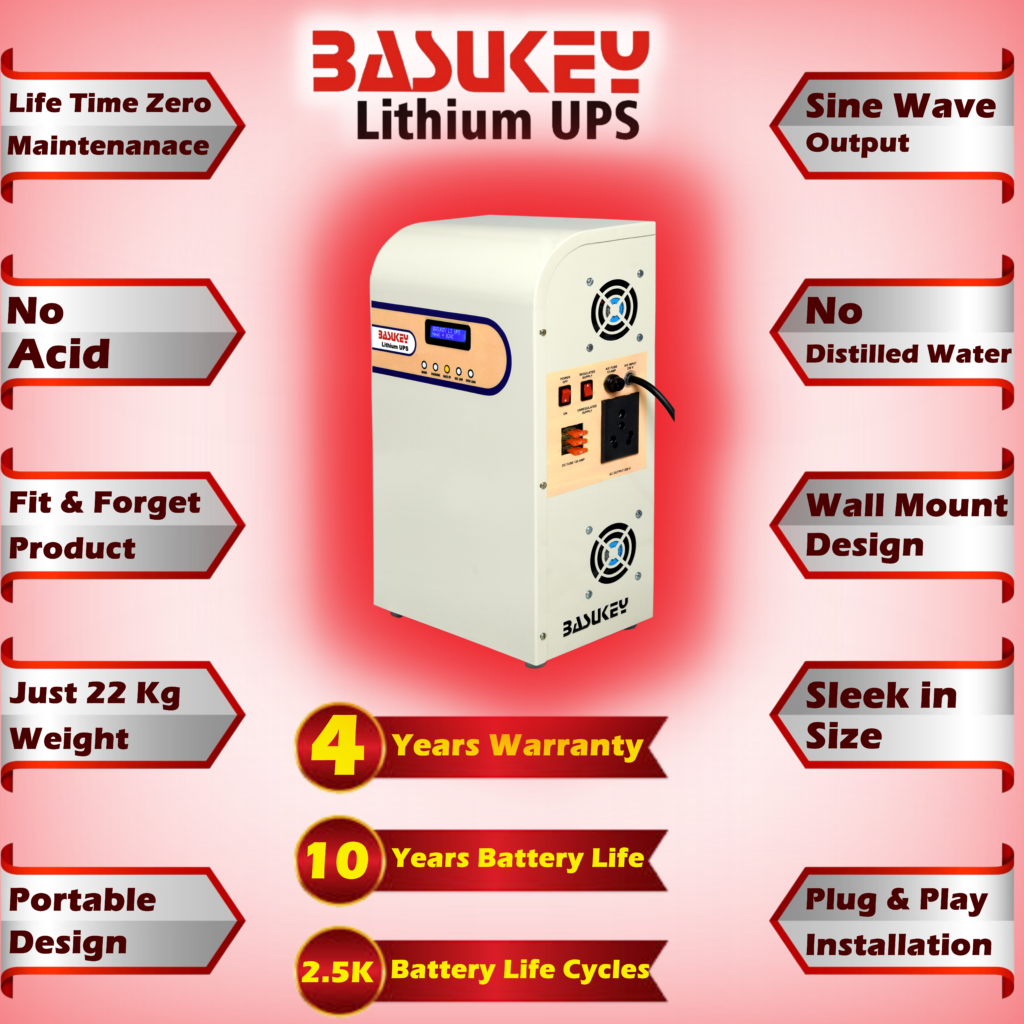Smart Energy Management: How Lithium UPS Optimizes Power Usage
Smart Energy Management: How Lithium UPS Optimizes Power Usage. In an era where efficiency and sustainability are paramount, businesses are increasingly turning to smart energy management solutions to reduce costs, enhance reliability, and minimize environmental impact. One key innovation leading this shift is lithium-ion Uninterruptible Power Supply (UPS) systems. Unlike traditional lead-acid UPS solutions, which are often inefficient and maintenance-intensive, lithium UPS technology optimizes power usage through better energy storage, faster charging, and intelligent monitoring. By integrating smart energy management strategies, lithium UPS systems help businesses improve power reliability while significantly reducing waste and operational costs.
The Role of Lithium UPS in Smart Energy Management
Smart energy management is about maximizing efficiency, reducing waste, and ensuring uninterrupted power supply. Lithium-ion UPS systems contribute to these goals in several ways:
1. Higher Energy Efficiency & Lower Power Losses
Lithium-ion batteries have a higher round-trip efficiency (typically over 95%) compared to lead-acid alternatives, which often lose significant energy through heat dissipation and inefficiencies. This means that more of the stored power is actually used, reducing overall energy consumption.

2. Fast Charging & Better Load Management
Lithium UPS systems recharge up to 4 times faster than traditional lead-acid systems. This allows businesses to:
- Recover backup power quickly after an outage
- Reduce strain on the grid by optimizing charging schedules during off-peak hours
- Improve demand-side management, ensuring energy is available when needed most
3. Intelligent Battery Management System (BMS)
Modern lithium UPS units come equipped with advanced Battery Management Systems (BMS) that continuously monitor key performance metrics such as:
- Charge and discharge rates
- Battery temperature
- Cycle health and efficiency
By analyzing real-time data, the BMS optimizes battery performance, prevents overcharging, and extends battery lifespan—minimizing unnecessary power usage and maintenance costs.
4. Peak Shaving & Grid Support
Lithium UPS systems can be integrated into smart grid networks to perform peak shaving—storing excess power when demand is low and discharging it when demand is high. This reduces dependency on expensive peak-hour electricity, lowering energy bills and supporting a more stable power grid.
5. Reduced Cooling Requirements
Lithium-ion batteries generate significantly less heat than lead-acid counterparts, reducing the need for air conditioning or cooling infrastructure. This is particularly beneficial for data centers and telecom facilities, where cooling accounts for a large portion of energy costs.
6. Integration with Renewable Energy Sources
With the increasing adoption of solar and wind energy, lithium-ion UPS systems offer a seamless way to store and distribute renewable power. They can:
- Store surplus solar power during the day and discharge it at night
- Stabilize intermittent energy sources by balancing supply and demand
- Reduce reliance on fossil fuels, lowering carbon footprints
Applications of Lithium UPS in Energy Optimization
- Data Centers & IT Infrastructure: Reduces power losses and improves backup efficiency.
- Industrial & Manufacturing Facilities: Ensures stable power supply while managing peak energy demands.
- Healthcare & Medical Facilities: Provides consistent power for critical systems without energy waste.
- Commercial Buildings & Smart Grids: Supports energy storage, peak shaving, and renewable energy integration.
Future of Smart Energy with Lithium UPS
The shift toward AI-driven energy management, predictive maintenance, and grid-interactive UPS systems is shaping the future of energy efficiency. Lithium UPS technology will continue to play a crucial role in building smarter, more resilient power infrastructures, offering businesses and industries greater control over their energy usage.
Conclusion
By optimizing power usage through higher efficiency, fast charging, smart monitoring, and renewable integration, lithium UPS systems are redefining energy management. For businesses looking to reduce costs, improve reliability, and achieve sustainability goals, investing in lithium-based smart energy solutions is the way forward.
